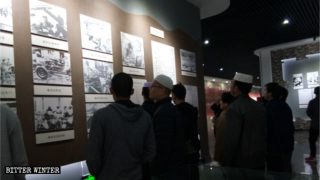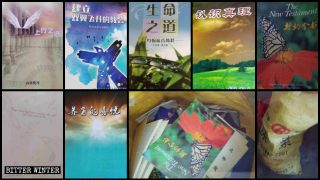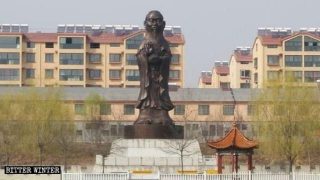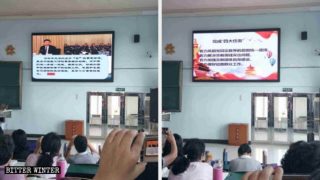While suppressing religions and non-Chinese customs, the CCP is substituting them with traditional native holidays with red overtones.
Li Guang
The Qingming Festival, often called Tomb Sweeping Day by non-Chinese, is a traditional holiday, dedicated to showing respect to deceased ancestors. It has been celebrated for ages, usually at the beginning of April, as an expression of filial piety – one of the Confucian values that has been ingrained into the psyche of Chinese society.
The festival was banned by the Communist government in 1949 but was rehabilitated and reinstated as a public holiday in 2008. In stark contrast to unprecedented crackdowns on non-Chinese customs and religious holidays, the government is promoting carefully selected ancient Chinese traditions and celebrations in an attempt to tie them into Xi Jinping’s policy to “sinicize” religions.
Due to its popularity with the Han Chinese, the Tomb Sweeping Day seems to fit the brief of “sinicization,” despite the abundance of superstitious activities – a big no-no for the masses. But the authorities turn a blind eye as millions of families across China flock to cemeteries not only to clean the graves of their relatives but also to burn paper offerings – in the form of fake money or with images of things that were liked by the dead – hoping to appease their spirits and ask for blessings to the living.
Disregarding its spiritual overtones, the CCP uses the Qingming Festival “[…] to direct people’s ‘longing’ toward Communist Party orthodoxy,” as the New York Times noted in its article from 2014. That year, large-scale “Red Tomb Sweeping” activities were organized in the cemeteries where Party leaders and revolutionaries are buried.
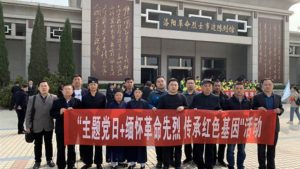
This year was no exception. The Tomb Sweeping Day was celebrated on April 5; and on its eve, the Bureau of Ethnic and Religious Affairs of Luoyang city, in Central China’s Henan Province, organized an event titled “Thematic Party Day: Commemoration of Martyrs to Inherit the Revolution Red Genes.” Church leaders and preachers from the Three-Self Church, as well as heads of city’s government-approved Catholic, Daoist, Buddhist, and Islamic places of worship, were invited to take part and went to the city’s Martyrs’ Cemetery to bow to revolutionary heroes.
According to one of the participants at the event, a local pastor, this was the first time, to his knowledge, when the local authorities involved religious leaders in the celebrations of the Qingming Festival. Since the holiday is non-Christian and certain practices during it are contrary to their beliefs, many from his church were unwilling to participate but were pressured by the Bureau of Ethnic and Religious Affairs.
A preacher added: “I’m not against commemorating the dead. But based on my understanding, I am not willing to celebrate the Tomb Sweeping Day, and most of our co-workers aren’t either. There are various indicators that the CCP is controlling religion in all aspects; they are testing the limits of people’s religious beliefs, turning them ‘red,’ time and time again. The so-called ‘patriotism’ and ‘traditional culture,’ frankly, are just about making people loyal to the Party.”
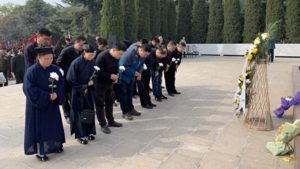
A clergy member from Luoyang’s Jianxi district revealed that before the Tomb Sweeping Day, the head of the local Two Chinese Christian Councils convened multiple times the district’s church leaders and deacons, making sure that they will to take part in the event. The official was stressing the importance to promote the traditional Chinese culture and break away from religious customs.
In 2018, the authorities’ efforts to make the religious to disaffiliate were especially harsh. To prevent the spread of “Western values,” Christians all over China were banned from observing Christmas traditions and were forced to celebrate Mao Zedong’s birthday instead, while loyal officials were handing out holiday gifts in the form of Party propaganda or destroyed churches. To fight terrorism, Muslims in Xinjiang were forced to eat pork and drink alcohol; and during the holy month of Ramadan, were prevented from praying and fasting. Instead, they were indoctrinated by uninvited Party cadres, sent to live in their homes to make sure that only the CCP-approved traditions are observed.
source:BITTER WINTER
